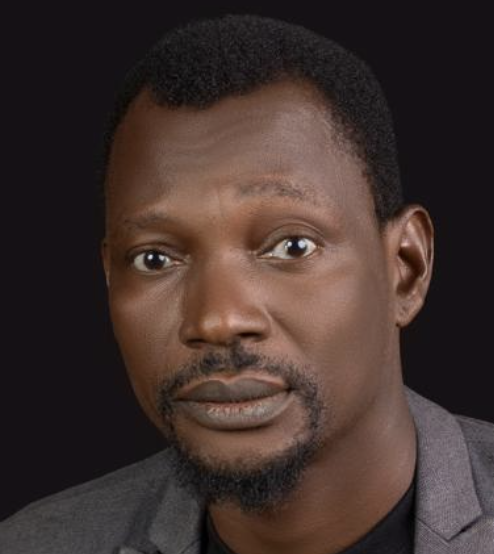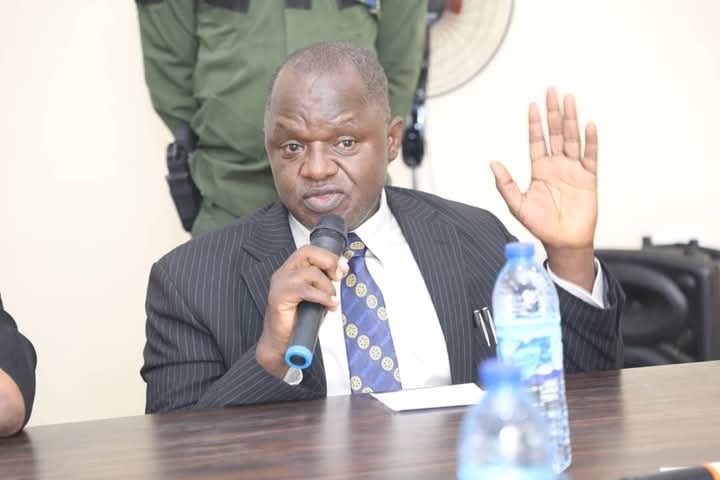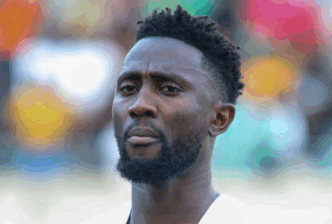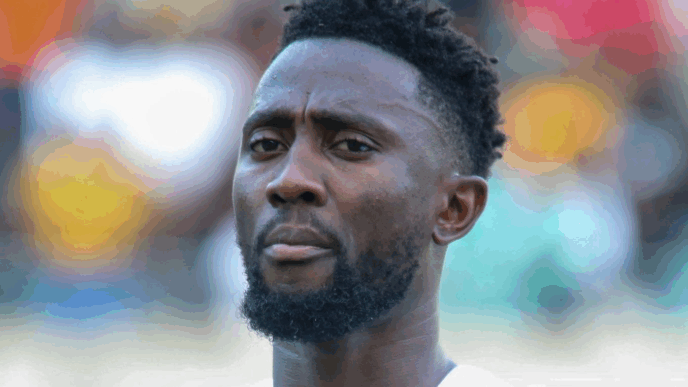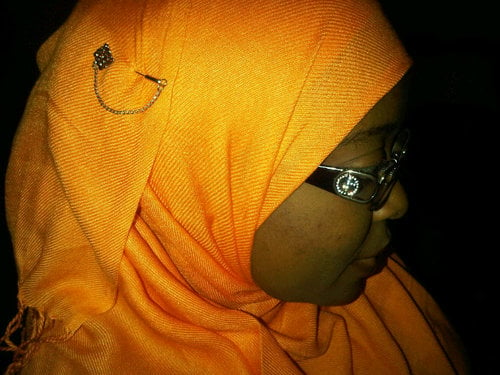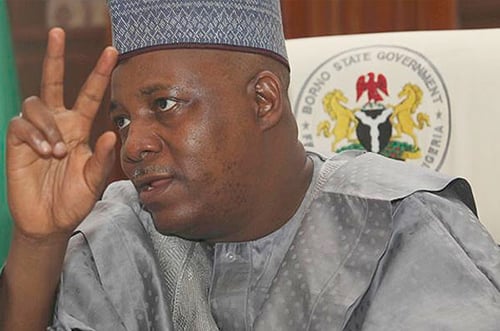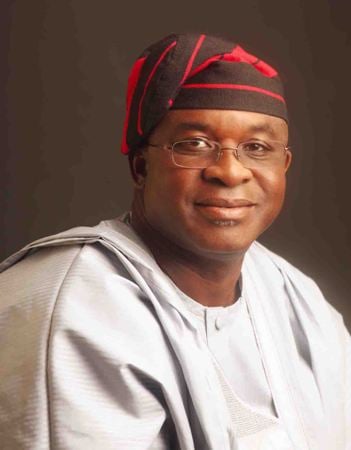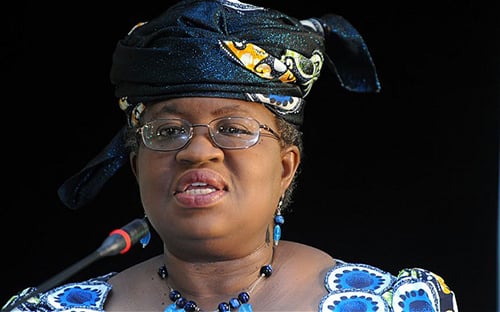Ayuba Burki Gufwan, a polio survivor, humanitarian and respected disability advocate, is the executive secretary of the National Commission for Persons with Disabilities (NCPWD). He holds a Bachelor of Laws (LLB) degree from the University of Jos (UniJos), Plateau state.
Before his appointment, he served as special adviser on disability affairs to the Plateau state government. He is also the chief executive officer (CEO) of Beautiful Gate Handicapped People Centre, Jos.
In this interview with TheCable’s YEMI MICHAEL, Gufwan shared his thoughts on key issues such as the database of PWDs in Nigeria, poverty rate in the disability community and alleviation measures, access to education and healthcare, NCPWD’s initiatives, achievements, challenges, and he provided recommendations for improving the lives of PWDs.
TheCable: You were appointed NCPWD executive secretary on August 6, 2024. Can you highlight the top three most significant initiatives or achievements the organisation has undertaken or facilitated under your leadership aimed at improving the lives of PWDs in Nigeria?
Advertisement
Gufwan: When I came on board, there was only one functional office for the commission. Efforts had been in the pipeline to establish zonal offices since the creation of the commission, but they kept proving difficult to achieve. When I came on board, the first thing I did was to ensure that we got zonal offices in each zone. Enforcement of the Disability Act and advocacy will not be properly implemented without touching the grassroots. This was why I even refused to touch a single file until we got the zonal offices.
After that, one of the most prevailing issues in our community is education and accessible education. What we did was to engage JAMB and seek a formidable way to make the exercise more accessible for PWDs. We succeeded in obtaining waivers for our people, most especially with regard to English and Mathematics, and the outcome was wonderful. It is a fact that JAMB will henceforth record higher participation of PWDs.
I asked myself, after protecting rights and ensuring accessible education, what should be the next priority? That was how we went into agriculture. We started holding a series of meetings with corporations focused on agricultural reforms, such as NABG. We further distributed fertilisers and other farming equipment to our people.
Advertisement
TheCable: The Discrimination Against Persons with Disabilities (Prohibition) Act 2018 mandates accessibility in public and private spaces. As a lawyer, what concrete steps is the NCPWD taking to enforce compliance with accessibility standards, particularly concerning infrastructure, transportation, and digital platforms across Nigeria?
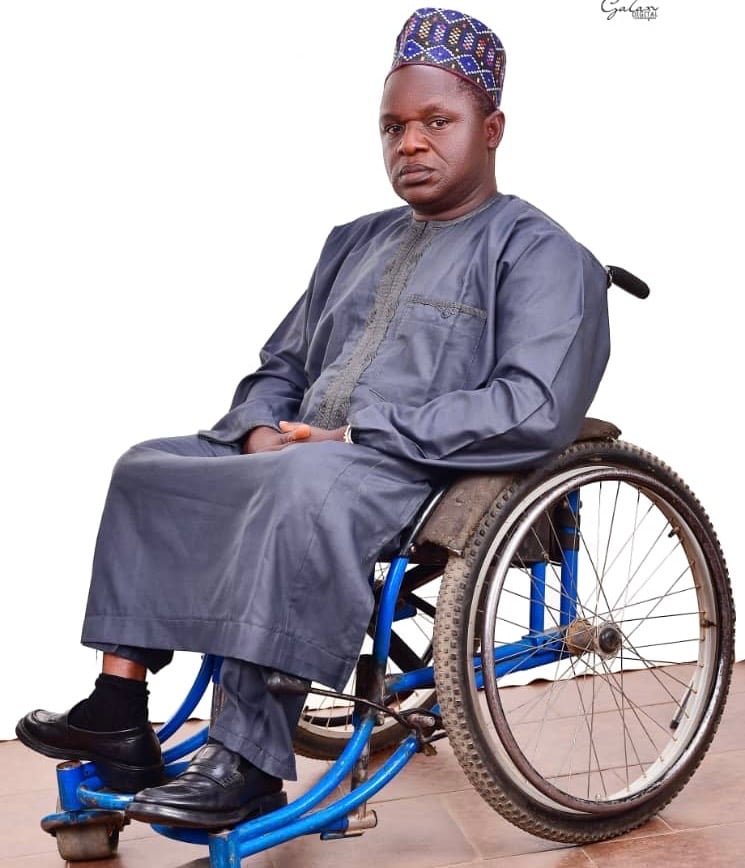
Gufwan: Now, in terms of transportation, the commission is working in collaboration with the Federal Ministry of Transportation to bridge the gap in an inaccessible transport system.
In air transportation, we have worked out a collaboration with the Nigerian Civil Aviation Authority and the Federal Airports Authority of Nigeria to provide accessible ambulifts that will enable wheelchair users to board aircraft without their dignity being undermined by lifting them up. We have pushed aggressively for the use of onboard wheelchairs to enable mobility inside the aircraft. These are ongoing discussions and alignments.
For physical and digital accessibility, the commission has developed the Persons with Disabilities Minimum Accessibility Standard Regulation. That regulation prescribes guidelines that the commission would formulate to enable enforcement of the provisions of the regulation. Recently, the commission completed work on the guideline and is awaiting the gazette.
Advertisement
Now, the commission is on the verge of rolling out certificates of compliance that will enable it to enforce the provisions of the Act that relate to digital accessibility, physical accessibility, and the disability inclusive development training that the regulations prescribe. Remember, it is just one year in office, and we are working at getting these things done in no distant time. We believe that within the next few months, you will begin to see results.
TheCable: A comprehensive database of PWDs is crucial for effective policy planning and intervention. What is the current status of the NCPWD’s database for PWDs, and how is this data being utilised to inform and target the commission’s programmes and policies?
Gufwan: So, frankly speaking, I will tell you that I did not meet any reliable data on the ground upon assumption of office a year ago. We had a meeting with the National Population Commission (NPC), and the NPC equally expressed their disappointment, saying that during the last census, PWDs were not disaggregated. So, what they have is a survey, and even that survey, they found it difficult to authenticate.
So far, there is no comprehensive, validated data, but we have commissioned consultants to begin data collection on PWDs. We believe that in no distant time, we will have the outcomes.
Advertisement
But again, we have issues of funding. Data collection is money. The little we have from the budget, we are utilising it to gather disaggregated disability data gradually. So, it is an ongoing activity, and we are looking at a positive outcome in no distant time.
For now, we are using the World Health Organization’s postulated figure of 35.5 million in our programmes and policies. Although we believe that the demography may be higher in Nigeria, we can not say that conclusively until we complete our data collection process.
Advertisement
TheCable: In your assessment, how effective have existing policies been in improving the daily lives of PWDs, and what are the primary barriers to their full implementation?
Gufwan: If you are talking about existing policies before the promulgation of the Act in 2018, then I will tell you that some of those policies worked, but the Act came to actually give those policies the force of law. They were more like policies and presidential directives. For example, there is a presidential order that says where vacancies exist in federal employment, PWDs should be considered. The disadvantage was that when those policies were not complied with, nobody could sue those who did not comply; nobody could go to court to challenge their infractions.
Advertisement
But the law has come to put even those policies into effect because the law has given PWDs rights to employment, rights to disability-specific provisions, and rights to live without discrimination of all types. Today, those policies paved the way for the Act, and the Act has come. The lives of PWDs have been improving. No matter how we look at it, disability awareness is higher now. People even understand that there are red lines you can not cross when it comes to the PWDs. There are tangible effects; more organisations and donor organisations are coming into Nigeria to support disability advocacy.
The government of the day is very much aware and interested in issues of disability inclusion. That is why the government has given appointments to PWDs just like other persons. These are dimensions in which awareness of the law has translated into tangible improvements.
Advertisement
TheCable: Reports indicate a disproportionately high rate of poverty among the disability community in Nigeria. What specific strategies and programmes is the NCPWD implementing or advocating for to combat this rising poverty and enhance the socio-economic well-being of PWDs?
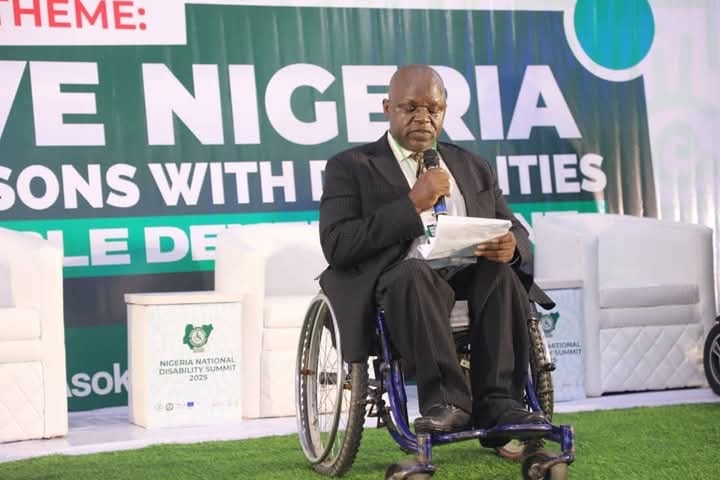
Gufwan: The issue of poverty in Nigeria cuts across the board, but PWDs are among the poorest of the poor in our society. It is a huge uphill task for the commission to work in collaboration with other ministries, departments and agencies (MDAs) and even with the presidency to ensure that PWDs are moved out of poverty.
We have proposed that every socio-economic empowerment programme of the government should allocate 10% to PWDs. We have equally advocated and pushed for the inclusion of the proportion of people with disabilities in socio-economic programmes of the government.
Let me break it down. If you have a national assembly member or senator who has a constituency project that has to do with empowerment, a considerable proportion or percentage of that empowerment must include or consider PWDs.
From the budget we have, we have organised vocational training for PWDs who are not educated or qualified for formal employment. For those who want skills, we have provided skills acquisition, given out POS machines, and startup capital to enable them to make some money and come out of poverty. It is an ongoing process, and we hope to keep the pace going; as long as funding comes as it should, we will be able to make the necessary impact.
We have also collaborated with organisations like the Beautiful Gates Centre for the Handicapped, Jos, to provide rugged manual tricycles for PWDs in rural areas because mobility is life. If somebody is not mobile, they will not be able to fend for themselves or make money. Providing assistive devices and mobility aids is part of the programme to take PWDs out of poverty.
TheCable: Beyond general poverty alleviation, what specific initiatives is the commission spearheading to promote gainful employment, entrepreneurship, and economic empowerment for PWDs, especially considering the 5% employment quota mandated by the Act?
Gufwan: Regarding the 5% employment quota mandated by the Act, the commission has obtained a service-wide circular from the secretary to the government of the federation directing all MDAs to ensure they comply with the 5% employment quota. The process is that agencies will refer their vacancies through NCPWD, and we will, from the commission’s database, send them the list of qualified PWDs.
The Federal Character Commission has equally adopted it as one of the conditions for agencies to fill their vacancies by including that 5% of total employment be given to PWDs. The Federal Civil Service Commission has also adopted this, including the Office of the Head of Civil Service of the Federation.
So, implementation of the 5% employment quota in the federal civil service is ongoing. We have organisations that are complying and have employed many of our members. We also have organisations that, for one reason or another, say they can not employ PWDs. It is an ongoing negotiation to secure compliance. When we conclude that an organisation is not willing to comply, we will make it public and escalate to the president.
In every area of national life and employment, PWDs can feature in any capacity. What can somebody in a wheelchair not do? And there are many hearing-impaired people who can do a lot. We have ICT and other opportunities; PWDs can perform. Discrimination is unacceptable, and we have come to fight it.
We have carried out zonal town hall meetings, inviting MDAs domiciled in the zones, their chief executives, labour unions, and other stakeholders to sensitise them on the law and the need to employ PWDs. We are planning a national summit where we will bring the head of service, the chairman of the Federal Civil Service Commission, the executive director of the Federal Character Commission and other organisations engaged with employment to deliberate on non-compliance and enforcement.
We are committed to ensuring that PWDs are gainfully employed at both the federal and state levels. Some states are even going beyond the 5% and aiming for higher targets, but those laws must be translated into practice to see results. The commission is committed to enforcing the 5% employment quota.
TheCable: Access to quality education and healthcare remains a significant challenge for many PWDs. Are you making any effort to ensure inclusive education systems?
Gufwan: Special education in Nigeria sits at the heart of our nation’s broader quest for inclusive development. While there have been commendable government initiatives, children and young PWDs still face formidable barriers in accessing quality education.
Specialised programmes, such as the special needs education initiative, have led to the establishment of special education centres across several states. These frameworks face implementation bottlenecks: inadequate funding, infrastructure deficits, and weak teacher training. Beyond budget lines, resources often fail to translate into accessible classrooms, adaptive learning materials, or sustained teacher development. Many schools are physically inaccessible, lacking ramps, braille signage, or functional assistive devices.
Teacher training is arguably the weakest link. A large proportion of teachers are not equipped with skills for inclusive teaching, such as differentiated instruction, sign language, or braille literacy. This results in a system where, even when children with disabilities enrol, they often “drop out within the classroom” due to neglect or ineffective support.
Broader socio-cultural barriers also weigh heavily. Stigma and low expectations often discourage families from sending children with disabilities to school. In rural areas, especially, children with disabilities are sometimes hidden away due to cultural beliefs, meaning the education challenge starts with visibility, not just access.
The commission is driving a National Disability Inclusion Architecture (NDIA) that prioritises inclusive education as a central pillar. We are working with Universal Basic Education Commission (UBEC) and state ministries to ensure new school buildings comply with accessibility requirements.
We are expanding scholarship programmes, such as the commission’s undergraduate scholarship scheme, which aims to reduce financial barriers for students with disabilities. We are advocating for the integration of sign language and braille literacy into teacher training programmes across the country.
The future of special education is not just about access but about quality participation. A student with a hearing impairment may enter a classroom, but if no sign language interpreter is provided, they remain excluded. Similarly, a child in a wheelchair may be admitted into a school, but if classrooms are upstairs without ramps, the child may not be able to access the opportunities.
What I am focused on achieving now is: dedicated funding lines (the 2% UBE allocation for special needs education should be ringfenced and transparently tracked); mainstream teacher training (every teacher should be trained in inclusive methods); reliable, disaggregated data for decision-making; and community sensitisation to dismantle stigma.
As a person with a disability, I know that education is the master key. Every Nigerian child, regardless of disability, has the right not just to sit in a classroom but to thrive in it. Our mission at the NCPWD is to transform inclusive education from policy on paper into reality on the ground. The true test of Nigeria’s development will be when no child is left behind, whether in a rural village or an urban centre. We are determined to work with the government, partners, and communities to make this vision a reality.
TheCable: Effective disability inclusion requires multi-stakeholder collaboration. How is the NCPWD engaging with other government agencies, civil society organisations, the private sector, and PWD organisations to achieve its mandate and foster a more inclusive society?
Gufwan: I agree that effective disability inclusion requires multi-stakeholder collaboration, and that is what the NCPWD under my watch has continued to do and has widened.
We have collaborations with virtually all MDAs because their activities connect to PWDs as Nigerian citizens in one way or another. We are not saying that because we are a commission for PWDs, all services should come to the commission. When you talk about sports, we have pushed for collaborations to ensure sporting activities and competitions are disability inclusive.
When allowances or supports are paid, they should equally cover PWDs. Women with disabilities should be included in women’s programmes; the ministry of women’s affairs should provide for all women, including women with disabilities. The same applies to youth programmes.
We are working with humanitarian services and non-governmental organisations (NGOs). In the communications sector, we are collaborating with service providers to ensure services are disability inclusive. We are not working in isolation; we are partnering with other bodies to achieve our mandate.
TheCable: Looking ahead, what are the NCPWD’s most practicable and meaningful short-term and long-term strategic plans to further advance the rights and well-being of PWDs in Nigeria, and what measurable outcomes do you aim to achieve?
Gufwan: In the short term (next 12–18 months), our priority is to fully launch and unbundle the strategic enforcement of sections 3–15 of the Act, which deal with physical and digital accessibility and anti-discrimination under section 1. We believe that within the next 12–18 months, we will have driven campaigns and strategies to the point where certificates of compliance will begin to be issued to organisations that meet requirements, and other enforcement mechanisms will be launched and harnessed.
We also expect defaulters to be arraigned and prosecuted in court for disability discrimination and other infractions related to the Act. In the long term, we plan to build a comprehensive, disaggregated database of PWDs in Nigeria, a long-term goal because data collection is not a day’s affair. That data will help programmers and planners to design targeted interventions.
We are also aiming for an inclusive transport system with accessible buses and train wagons. We hope that 55% of PWDs will be lifted out of poverty in the next few years through increased education enrolment, full implementation of the 5% employment quota, expanded vocational training, and loan facilities for entrepreneurs.
We are working to unlock the internally generated revenue (IGR) infrastructure of the commission to increase funds for programmes and policies. We are hopeful that these long-term goals will materialise positively and that the commission will be able to scale its impact.
TheCable: On a final note, considering all the challenges and opportunities, what are your top three overarching recommendations for government, the private sector, and individuals that you believe are crucial for significantly improving the lives and ensuring the full inclusion of PWDs in Nigeria?
Gufwan: When I consider the challenges and opportunities, my top three overarching recommendations are as follows.
For the government: The government should consider disability as a peculiarity and an emergency that requires funding. Disability involves survivors of polio, accident victims, persons with spinal cord injuries who require regular physiotherapy and medication, and persons with sensory loss who need care.
Almost every aspect of disability requires regular medical checkups and support. We are hoping the government will increase the budgetary allocation of our commission to cater for PWDs in the same way such supports are provided in other countries.
Government institutions and organisations must begin to comply fully with the provisions of the Act. Our goal is to stamp out disability discrimination; once that is done, Nigeria will be a better place for everyone.
For the private sector: The sector should pay more attention to the affairs of PWDs. The Act is not only for government institutions; the private sector is part of the country and must comply. If you are launching scholarships or empowerment schemes, ensure disability inclusion. If you are constructing a building, understand that it is a public space and PWDs have a right to access it.
For individuals: Individuals should ask themselves, “If I were the one with a disability, how would I want to be treated?” If you answer that honestly, then treat the next person with a disability as you would want to be treated. We are urging Nigerians to be empathetic to PWDs. That is when society will become friendly and accommodating, and inclusion will make more sense.
